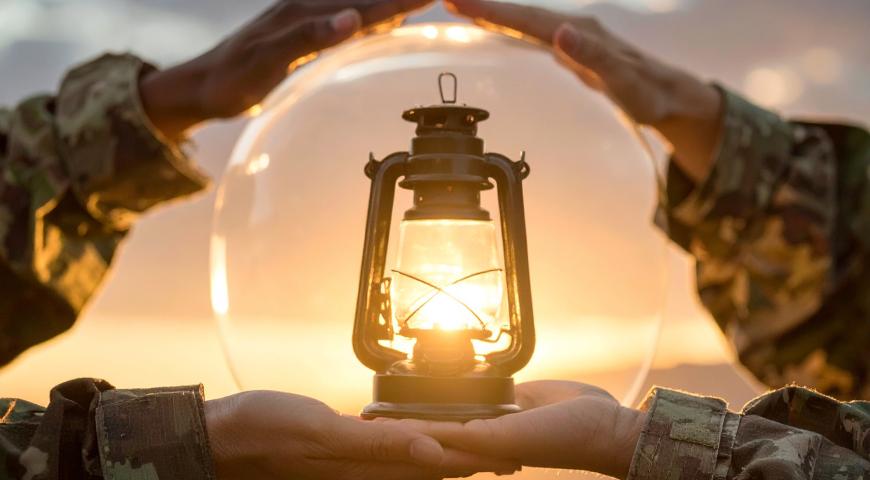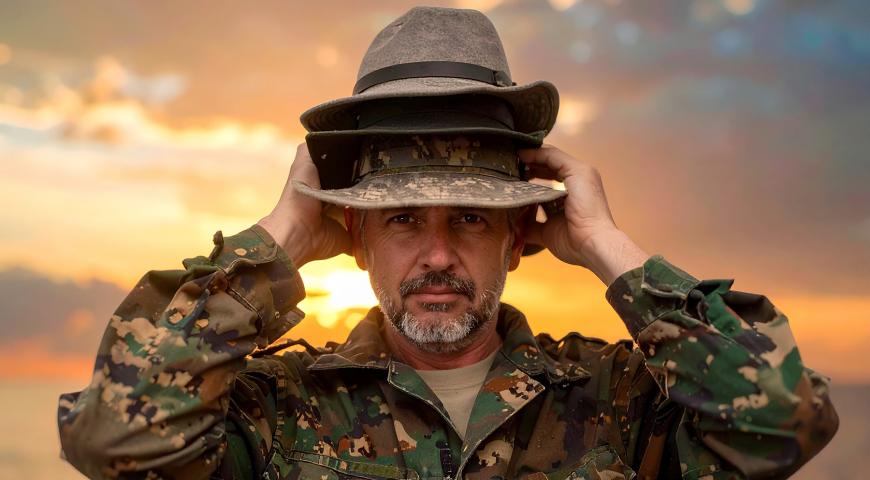#WhyWeWrite Series Why I Write
SQNLDR Ulas Yildirim
A couple of years ago, I attended the Australian Command and Staff Course (ACSC). I can comfortably say that ACSC was a very enjoyable period in my career. I put a lot of effort into engaging with the course material and broadening my network. Therefore, following the course I wanted to further the skills I had developed. Importantly, I felt that without continued practice these skills would perish and all the effort and angst would be wasted. Hence, the following is why I write:
I write for me.
I write because it makes me think.
I write because I want to understand.
I write because I want to be challenged.
I write because I want to share.
I write because I want to make a difference.
I write because it is hard.
I write because I enjoy it.
I write because I am a professional in the profession of arms.
However, I did not feel this way from the beginning. Within a few weeks of starting ACSC, three events in quick succession changed my perspective of the profession to which I belonged and turned my entire world upside down along with my unfounded confidence.
I was happy to attend ACSC thinking I could rely on my analytical skills, ability to write fast and manage multiple tasks with relative ease. Prior to the course I had already obtained a bachelors degree in aerospace engineering and I was in the final stages of completing my PhD in the same field. Furthermore, the year prior to ACSC I had been a personal staff officer to a one star in a busy headquarters type environment within which my written skills were considered to be relatively good. Finally, having grown up in Turkey and France, I had been exposed to the mandatory readings in school on various topics including literature and European history from different perspectives that I had kept up ever since. Hence, over the years I had been reading bits and pieces that I considered interesting between my engineering studies and work without any real focus. With that in mind, coming to ACSC my plan was to treat the course as one of my studies or previous roles in Defence and that with some effort I would get through with relative ease. The next three events proved otherwise.
The first event was a lecture by Dr Jack Bowers. Already overwhelmed by the readings of the week from a little known author called Thucydides, Bowers’ lecture was meant to give an overview of the strategy module. His opening slide Plus ca change, plus c’est la meme chose should have been my first clue. But alas other than literally translating what it meant — the more things change, the more they remain the same — I did not understand where Bowers was going to lead us. He then read the following passage:
The invasion of Iraq, when it finally came, was merely the climax of an ongoing period of crisis and upheaval in the international order. The stand-off between the two sides had been a geopolitical fixture for years… [1]
Thus far I was still thinking ‘what has this got to do with Thucydides?’ Bowers continued:
What it confronted on its adversary was nothing less than a superpower, the most formidable on the planet. The task force brought to bear by the invaders was a quite display of shock and awe… [2]
Again, I thought ‘for God’s sake, why are we talking about the Gulf War? Is this going to be another wasted year where I am forced to sit through lectures that have nothing to do with how I can be better at my job?’ Bowers continued:
A bare few weeks after hostilities had begun, the war was effectively over. So it was, on October 12, 539 BC, that the gates of Babylon were flung open “without a battle” and the greatest city in the world fell into the hands of Cyrus, the king of Persia. [3]
!!!!BOOM!!!!
I was duped!!! Comfortably oblivious in my total ignorance of where the passage was going, I had no idea what Bowers was talking about until the last sentence. It then dawned on me what the title of his slides meant. The rest of the lecture I could not sit still. I was confused and excited at the same time that a new world had opened right in front of me. From then on, I started reading everything I could get my hands on. Sometimes I would stay up well past midnight and then get up before class to keep reading. I could not stop — reading and talking to anyone who was willing to listen, often boring them to sleep. There was so much to learn and I was so behind… The next event proved to be as confronting.
The second event was soon after Bowers’ lecture. Professor Elliot Cohen was invited to make a presentation on civil-military relations. After a brief introduction, Cohen openly stated that his intention was to ask more questions than to provide answers, that each individual should contemplate their own answers. As promised, for the next 45 minutes Cohen bombarded the class with such questions as ‘is being in the military a profession or an occupation? What is the role of the military professional? Should the military professional be allowed to enter civil service? Should the military professional’s family be allowed to receive benefits? Why? etc.’ I was outraged!! Not only because there was an exam coming up and he had provided nothing to the class — so I thought — but I felt I knew the answers to all of the questions!
What a waste of time…
We then went back to our syndicates to discuss the topic of civil-military relations amongst our classmates. Preceding the discussions, the syndicate watched a short movie clip of George C. Scott’s ridiculous portrayal of General Buck Turgidson in Stanley Kubrick’s Dr Strangelove. I felt it was a caricature never to be encountered in the real world. Then the opening question for discussion was ‘is this a reflection of the military?’
Surely not…
Anna, the syndicate’s sole public servant, responded with ‘yes, you all come across to us civilians exactly as portrayed in the clip!’
!!!!BOOM!!!!
I was speechless. But, the more I tried to provide my perspective the more I realised it was founded on shaky knowledge. My answers were not clear and the belief that I had about my role and of military personnel was at times opposite to others including those in the military. Once again it dawned on me. I was duped, this time by Cohen and his silly old questions. The experience in the syndicate had shaken me to my core. Random reading was not enough. I needed to be focussed in my inquiries.
Time to reflect…
The third event was the first exams at ACSC. Two four hour exams on successive days were scheduled to close off the strategy module. I was confident that I was well prepared, for I had read everything thrown my way and more. But, not having written essays for exams before I was anxious about how this was going to turn out. The first exam question was about civil military relations. The second, was about the Cold War. It was a blur and I struggled. I remember feeling my head was full of ideas but I could not express them on paper. I was making connections that made perfect sense to me but when it came to writing them on paper it all looked like gibberish.
I was too broad, then I was too narrow, then I was not answering the question that was asked.
Where is the thread…?
What is the story I am trying to tell…?
Managed to get through the exams…
While I felt confident about the first exam — thank you Anna — the second one I knew was going to be a disaster. A few weeks later the results were out.
First result, distinction.
Second… FAIL!!
!!!!BOOM!!!!
Punch in the gut. This writing thing is harder than I imagined.
Time to regroup with a new plan…
The literal translation of essay is an attempt or effort. It is to seek perfection without ever reaching it. It is subjective. It is difficult, and most importantly it requires practice. Hence, I implemented another process. Read lots, think about the whys not only the details. Then, write some arguments supported by a few examples to back the argument. Through this process I feel I got the most out of the course material.
Personally, from a study perspective these three events were the best things that happened to me at ACSC. Since then, akin to a marketing strategy, I see the role of my writing to be an attempt to make the complex simple and to make the simple compelling for me and others.
Finally, I write as I want to continue to contribute to the security debate in a changing world because the perspective that each of us has will only provide a clearer picture against adversity.
Technical Mastery
Social Mastery
Please let us know if you have discovered an issue with the content on this page.
Comments
Start the conversation by sharing your thoughts! Please login to comment. If you don't yet have an account registration is quick and easy.




